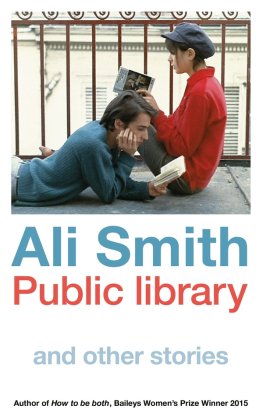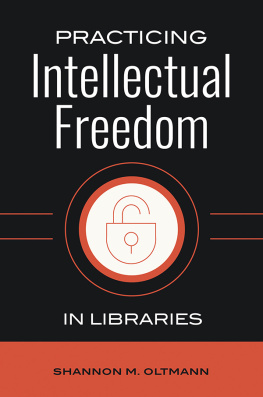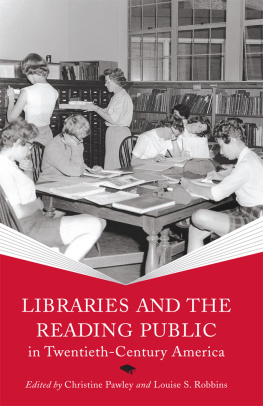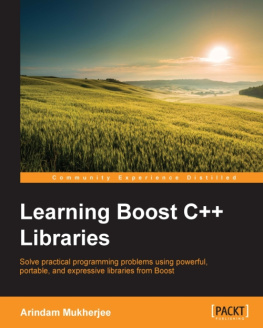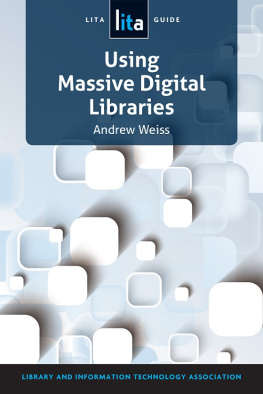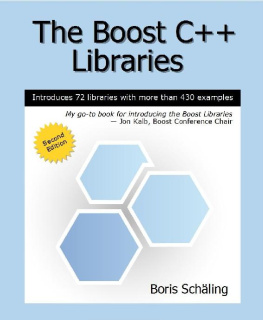Contents
Guide
About the Author
Mike Selby is an information professional, a public librarian, and a popular newspaper columnist. He has published over one thousand articles on print culture, libraries, and the Civil Rights Movement. His work has also been featured in peer-reviewed journals and the Library History Roundtable of the American Library Association. He received his MLIS from the University of Alabama, and lives and practices librarianship in the Rocky Mountains of British Columbia.
His work on librarians during the Civil Rights Movement has been featured in the peer-reviewed journal Feliciter, and his discovery of two Freedom Libraries in Alabama was also published in the journal The Southeastern Librarian. He has written extensively on the grim history of library segregation in his newspaper column, Mikes Booknotes. He has been the information services librarian for the Cranbrook Public Library for more than a dozen years. His history of that library was published with acclaim on ALA Library History Roundtable News & Notes blog.
During his graduate work at the University of Alabama, he first learned about the Freedom Libraries in Mississippi, which had only come to light in 2008. Although he was told point blank that none had existed in Alabama, this turned out not to be true at all. His research uncovered two in that state. The courage and violence and legacy of these two had to be told, and his findings were published in the journal The Southeastern Librarian.
Acknowledgments
This book would not have been possible without the kindness and generosity of spirt of numerous people, beginning with the veterans of the Civil Rights Movement. I have been deeply moved, inspired, and changed by the time and memories the following people shared with me: Shirley Bates, Melba Pattillo Beals, Clayborne Carson, John Elliot Churchville, Dennis Coleman, Sanderia Faye, Laura Foner, William Hanson, Bruce Hartford, Peter Kellman, Millard Lowe, Patti Miller, Richard Morrisroe, Denise Nicholas, Pattie Mae McDonald, Willie James McDonald, Gwendolyn Zohara Simmons, Sue Sojourner, Sheldon Stromquist, Maria Varela, Ellen Wolfe, and Sarai G. Zitter. Special thanks also belongs to Eve Pomerance, who shared memories and documents of her mother, Sally Belfrage.
Patterson Toby Graham and Karen Cook introduced me to Freedom Libraries and have been kind enough to answer many questions. Special thanks to Dr. Cook for sharing her doctoral thesis with me. I owe much to the University of Alabama, especially professors Jeff Weddle and Elizabeth Aversa. Beth Riggs went the extra mile to ensure I felt Alabama was my second my home. Nancy Derums, Lance Day, Stephanie Ford, Amber Brookins, and Natalie Valente of the BGE are owed particular thanks, as well as everyone belonging to the Lucky Seven.
Debts of gratitude are also owed to my professional colleagues, especially Ursula Brigl, Deanne Perrault, and Karin von Wittgenstein. Dave Clarks praise has never gone unnoticed. Additional thanks go to Barry Coulter at the Daily Townsman, who let me cover the book beat for more than a decade. Both Ian Cobb and Carrie Schafer at e-know.ca also deserve recognition for publishing my work. All of you have helped me stretch and grow as a writer.
I am forever grateful to my parents and my sisters for a lifetime of love and encouragement. My sons, Simon and Daniel, and granddaughter, Harmony, have always and continue to bring joy to my heart and life. Maggie Muir Tuck helped shape my intellect and character decades ago, and there isnt enough thanks to give her.
Catherine Murphy and James Marquandtwo documentary filmmakersalso have my gratitude. Catherine opened many doors for me, and poor James searched high and low for a photo of his father at Selma, which was never found. Both were enthusiastic about this book; many, many thanks.
I am especially grateful to my editor, Charles Harmon, whose belief in this book helped shape the final product. His commitment and encouragement to me is another debt I cannot pay.
Of course, the largest debt is owed to Heather, the love of my life and best friend, whose belief in me and support have been immeasurable.
Selected Bibliography
Battles, David M. The History of Public Library Access for African Americans in the South, or, Leaving Behind the Plow. Lanham, MD: Scarecrow Press, 2009.
Beals, Melba Pattillo. Warriors Dont Cry: A Searing Memoir of the Battle to Integrate Little Rocks Central High. New York: Pocket Books, 1994.
Belfrage, Sally. Freedom Summer. Charlottesville: University of Virginia Press, 1999.
Branch, Taylor. At Canaans Edge: America in the King Years, 196568. New York: Simon & Schuster, 2007.
. Parting the Waters: America in the King Years, 19541963. New York: Simon & Schuster Paperbacks, 1988.
. Pillar of Fire: America in the King Years, 196365. New York: Simon & Schuster, 1998.
Cook, Karen. Freedom Libraries in the 1964 Mississippi Freedom Summer Project: A History. Tuscaloosa: University of Alabama Press, 2008.
Countryman, Matthew J. Up South: Civil Rights and Black Power in Philadelphia. Philadelphia: University of Pennsylvania Press, 2003.
Dent, Thomas C., Richard Schechner, Gilbert Moses, and the Free Southern Theater, eds. The Free Southern Theater, by the Free Southern Theater: A Documentary of the Souths Radical Black Theater, with Journals, Letters, Poetry, Essays, and a Play Written by Those Who Built It. Indianapolis: Bobbs-Merrill, 1969.
Dittmer, John, Local People: The Struggle for Civil Rights in Mississippi. Champaign: University of Illinois Press, 1994.
Eagles, Charles W. Outside Agitator: Jon Daniels and the Civil Rights Movement in Alabama. Tuscaloosa: University of Alabama Press, 2000.
Early, Gerald L. This Is Where I Came In: Black America in the 60s. Lincoln: University of Nebraska, 2003.
Fabre, Genevieve. Drumbeats, Masks and Metaphor: Contemporary Afro-American Theatre. Cambridge: Harvard University Press, 1983.
Faye, Sanderia. Mourners Bench. Fayetteville: University of Arkansas Press, 2015.
Gaillard, Frye. Cradle of Freedom: Alabama and the Movement That Changed America. Tuscaloosa: University of Alabama Press, 2004.
Graham, Patterson Toby. The Right to Read: Segregation and Civil Rights in Alabamas Public Libraries. Tuscaloosa: University of Alabama Press, 2002.
Halberstam, David. The Children. New York: Fawcett Press, 1999.
Hale, Jon N., and William Sturkey, eds. To Write in the Light of Freedom: The Newspapers of the 1964 Mississippi Freedom Schools. Jackson: University of Mississippi Press, 2015.
Holsaert, Faith S., ed. Hands on the Freedom Plow: Personal Accounts by Women in SNCC. Chicago: University of Illinois Press, 2012.
Huie, William Bradford. Three Lives for Mississippi. New York: Whitney Communications, 1965.
Jeffries, Hasan Kwame. Bloody Lowndes: Civil Rights and Black Power in Alabamas Black Belt. New York: New York University Press, 2009.
Joseph, Peniel E. Stokely: A Life. New York: Basic Civitas, 2014.
Katagiri, Yasuhiro. The Mississippi State Sovereignty Commission: Civil Rights and States Rights. Jackson: University Press of Mississippi, 2001.
King, Martin Luther, Jr. The Autobiography of Martin Luther King Jr. Edited by Clayborne Carson. New York: Warner Books, 2001.
Knott, Cheryl. Not Free, Not for All: Public Libraries in the Age of Jim Crow. Boston: University of Massachusetts Press, 2015.
Kranich, Nancy C., ed. Libraries & Democracy: The Cornerstones of Liberty. Chicago: American Library Association, 2001.


